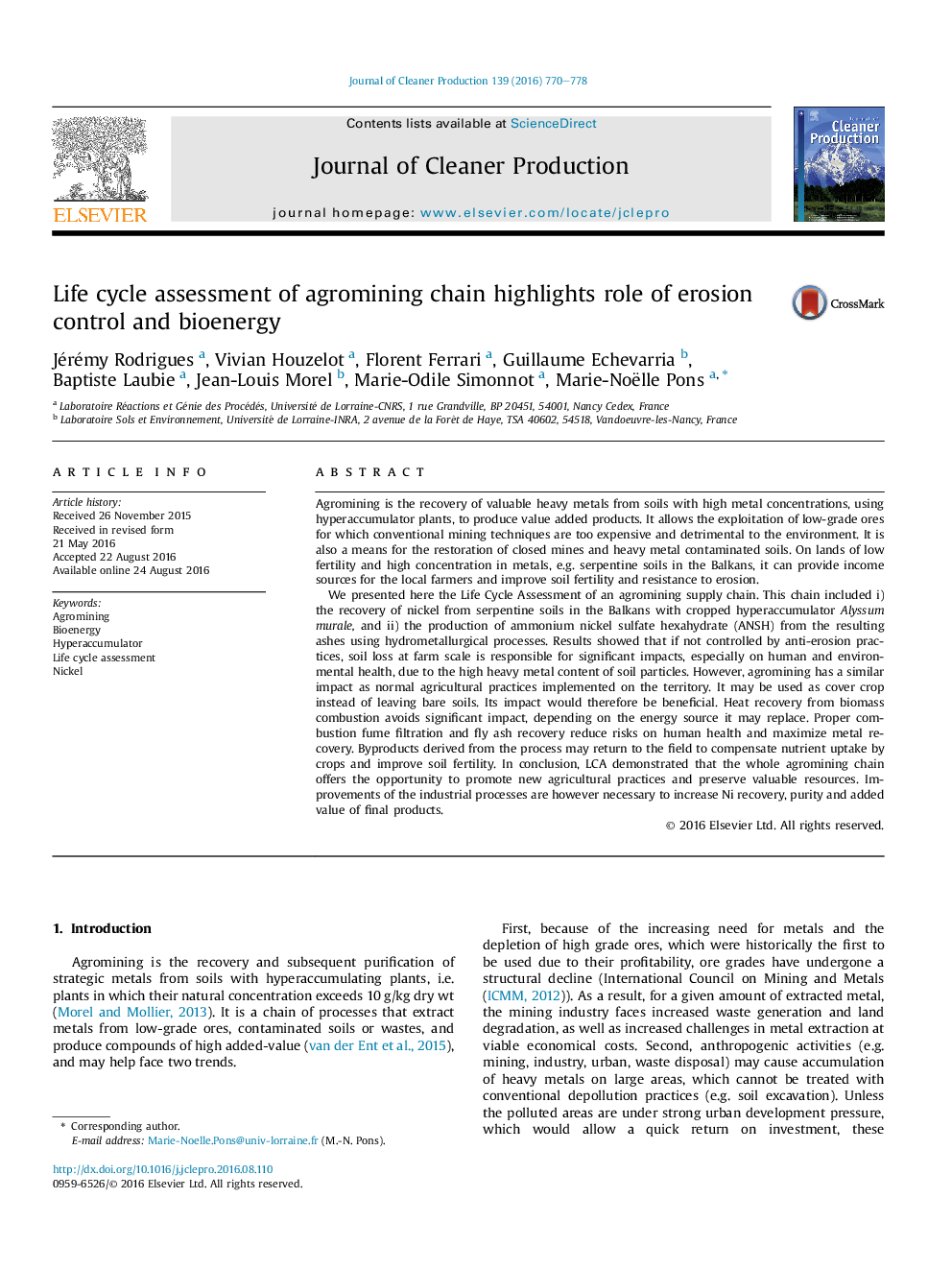| Article ID | Journal | Published Year | Pages | File Type |
|---|---|---|---|---|
| 8100666 | Journal of Cleaner Production | 2016 | 9 Pages |
Abstract
We presented here the Life Cycle Assessment of an agromining supply chain. This chain included i) the recovery of nickel from serpentine soils in the Balkans with cropped hyperaccumulator Alyssum murale, and ii) the production of ammonium nickel sulfate hexahydrate (ANSH) from the resulting ashes using hydrometallurgical processes. Results showed that if not controlled by anti-erosion practices, soil loss at farm scale is responsible for significant impacts, especially on human and environmental health, due to the high heavy metal content of soil particles. However, agromining has a similar impact as normal agricultural practices implemented on the territory. It may be used as cover crop instead of leaving bare soils. Its impact would therefore be beneficial. Heat recovery from biomass combustion avoids significant impact, depending on the energy source it may replace. Proper combustion fume filtration and fly ash recovery reduce risks on human health and maximize metal recovery. Byproducts derived from the process may return to the field to compensate nutrient uptake by crops and improve soil fertility. In conclusion, LCA demonstrated that the whole agromining chain offers the opportunity to promote new agricultural practices and preserve valuable resources. Improvements of the industrial processes are however necessary to increase Ni recovery, purity and added value of final products.
Related Topics
Physical Sciences and Engineering
Energy
Renewable Energy, Sustainability and the Environment
Authors
Jérémy Rodrigues, Vivian Houzelot, Florent Ferrari, Guillaume Echevarria, Baptiste Laubie, Jean-Louis Morel, Marie-Odile Simonnot, Marie-Noëlle Pons,
